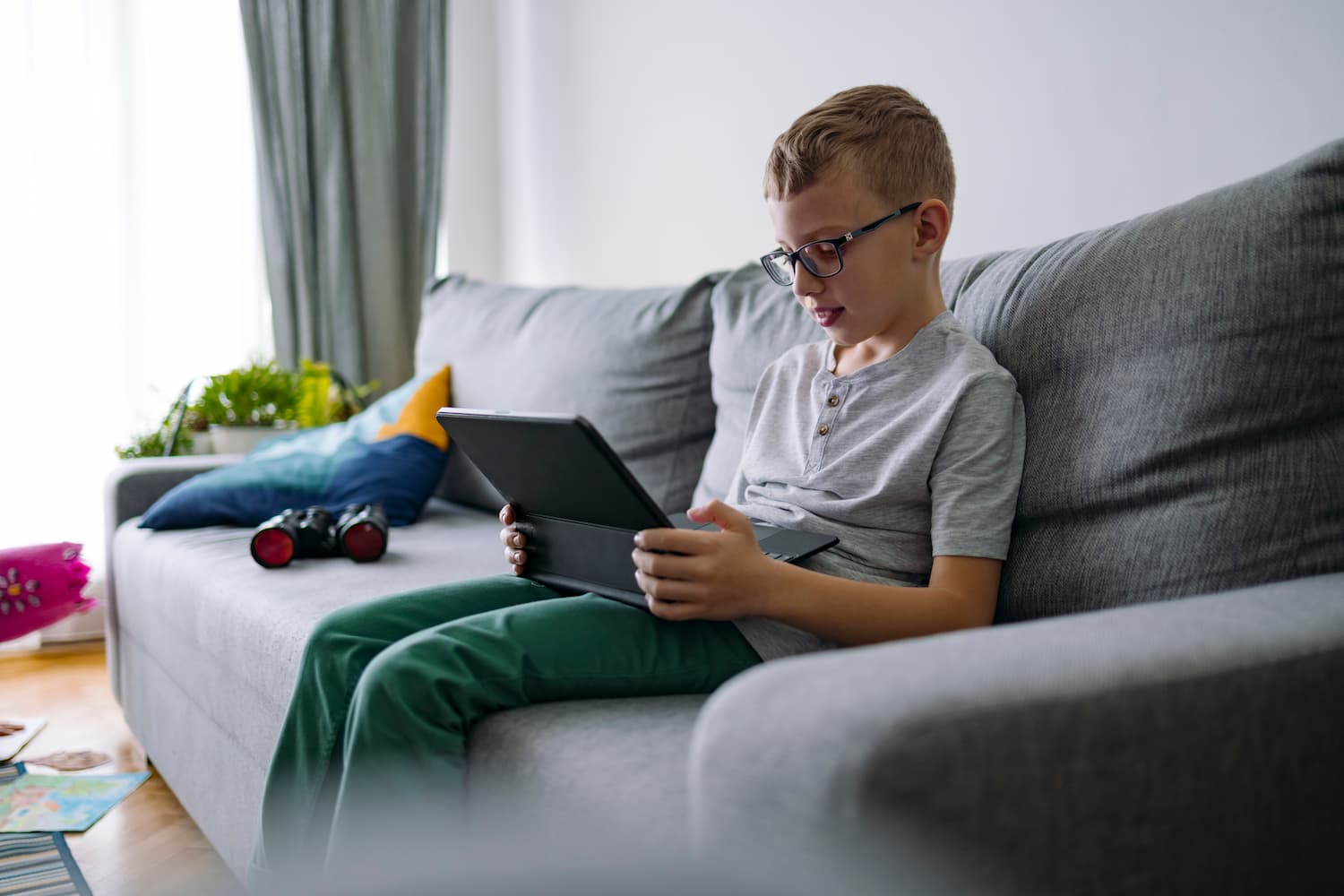Is Too Much Screen Time Bad for Kids? It’s Complicated
UCSF expert explains links to disruptive behavior, increased anxiety and eating disorders.

During school breaks and holidays, children tend to increase their recreational screen time. As parents, we tend to worry, but do we need to? We asked UCSF Benioff Children’s Hospitals’ Jason Nagata, MD, assistant professor of pediatrics and screen time researcher, about links between screen use and illnesses such as obsessive-compulsive disorder and conduct disorder – as well as how children can use screens wisely.
What does research tell us about screen time’s effects on children?
The more time teens spend on social media, the less connected they feel to others. They are also more likely to compare themselves to unrealistic body ideals, which can develop into an eating disorder. Binge watching shows can lead to binge eating, resulting in weight gain and guilt.
For preteens, excessive screen time can lead to conduct disorder and oppositional defiant disorder, which are behavior disorders. A recent study found that playing video games and watching YouTube videos is linked to developing OCD (obsessive-compulsive disorder).
Is YouTube more harmful than TV shows or movies?
YouTube uses algorithms to keep you watching, which can hook kids into a narrow subject area that may not be healthy, such as content about dieting or mean pranks. Historically, with TV and movies, the time and content was set – you could only watch the show you like on Sundays at 8 p.m. Even now, with on-demand, you can binge, but the content is curated and professionally done, so there is quality control. On YouTube, anyone can post.
And kids can watch other kids doing things on YouTube. Is that significant?
I think so. In traditional Hollywood movies and TV, you only see a limited number of children who are celebrity actors. But on social media and YouTube, anyone can become an influencer, and that adds a layer of pressure and even stress to be like them: Maybe *I* could become famous or make lots of friends too.
How much screen time do you recommend?
The American Academy of Pediatrics used to recommend less than two hours for ages 5 and up. Now they are moving away from giving specific hours, because the reality is that most kids spend far more than two hours a day on screens, and not all screen time is equal. Now they recommend creating a plan based on what makes sense for your family given your kids’ screen habits and your family’s situation.
What should a screen plan include?
It might include a daily time limit on overall screen use, or on certain types of screen use such as video gaming. Consider setting screen-free times, such as before bedtime or at family meals, and “screen-free zones,” such as bedrooms and bathrooms. Screens in public areas are easier to monitor. And of course, there are also parent controls on devices that limit time on screens or restrict explicit content.
The American Academy of Pediatrics and Common Sense Media can help parents create media plans.
How often should parents talk to their kids about screen use?
Natural transition times, such as holidays and summer breaks, are good times to set expectations about screen use. Parents can create a schedule for that temporary time period, and it can include solo use but also ways to connect and interact such as playing online games together as a family, or making video calls to relatives who live far away.
So the takeaway is: Keep an eye on what your kids are doing and how they are reacting, and modify their use accordingly?
For sure. Screens themselves aren’t inherently bad and they are here to stay. We need to learn to live with them. You can still watch movies and have great discussions with friends about them. You can interact with people by video in real time. It’s more about how screens are making you feel, and whether screen time is displacing things like physical activity.
It’s important to know that if you or your child need help with screen addiction, you should consult a pediatrician, family doctor or mental health professional.
So the takeaway is: Keep an eye on what your kids are doing and how they are reacting, and modify their use accordingly?
For sure. Screens themselves aren’t inherently bad and they are here to stay. We need to learn to live with them. You can still watch movies and have great discussions with friends about them. You can interact with people by video in real time. It’s more about how screens are making you feel, and whether screen time is displacing things like physical activity.
It’s important to know that if you or your child need help with screen addiction, you should consult a pediatrician, family doctor or mental health professional.